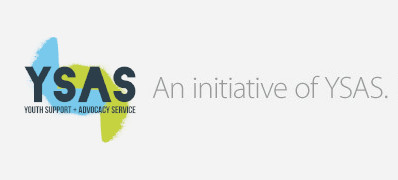GRACE: Guanfacine extended-Release for Adolescents with problematic Cannabis use Experiences
Referral guide for clinicians
What is the study?
GRACE is a double-blind randomised controlled trial for young people aged 12-21 seeking treatment for problematic cannabis use. It aims to test the efficacy of guanfacine extended-release (XR) in reducing cannabis use in young people referred to YSAS residential withdrawal services, as indexed by frequency of cannabis use during a 4-week outpatient phase following discharge from residential withdrawal.
The study medication will be provided in addition to treatment as usual (including engagement with GP or psychiatrist, referral to outpatient AOD services, and inpatient care at YSAS residential withdrawal service). Participants will complete comprehensive screening and baseline testing. They will then then undergo 12 weeks of guanfacine XR treatment in total. Participants will initiate treatment at 1 mg/day, increasing by 1 mg/week over 3 weeks to a maintenance of 4 mg (or as tolerated) for 6 weeks, followed by dose tapering over 3 weeks. Inpatient treatment at YSAS will occur for 14 days total, during weeks 4 and 5 of study involvement.
Study Rationale
Cannabis is the most common principle drug of concern for youth presenting for AOD treatment in Victoria, accounting for the majority of youth presentations. However, few of those entering treatment will achieve abstinence. With no effective pharmacotherapies for cannabis withdrawal in young people, there is an urgent need to investigate novel medications for this indication. Guanfacine XR is a promising candidate that has the potential to target symptoms via a three pronged approach: (1) ameliorating key symptoms of withdrawal such as sleep disturbance and irritability; (2) increasing treatment engagement and retention by reducing impulsivity and distractibility, and (3) reducing craving by targeting withdrawal-related noradrenergic dysregulation. It is also well characterised and safe for paediatric use.
Investigational Product
Guanfacine is a non-stimulant medication that acts on α2A adrenergic receptors in the brain, modulating noradrenergic neurotransmission; it is thereby thought to have beneficial effects on attention, cognitive organisation, and impulse control. Previous studies suggest that guanfacine may be beneficial in attenuating withdrawal symptoms and craving associated with opioid, nicotine and cannabis dependence in adults, although data are limited. To date, no studies have investigated the efficacy or tolerability of this promising candidate for cannabis withdrawal in young people.
What happens when a young person is referred to the study?
Once we receive a referral from a treating clinician, we contact the young person directly, discuss the study with them, and provide them with study documentation. Consenting participants are then reviewed by a study doctor and undergo a screening assessment to confirm eligibility. After the assessment, referring doctors are informed in writing as to whether or not the young person is eligible to be enrolled in the trial.
Who can be referred to Guanfacine?
Eligibility criteria for this study include:
- 12-21 years of age (inclusive) at consent;
- Seeking treatment to reduce cannabis use
- Report using cannabis at least 5 days a week during the 28 days prior to study entry with a positive urine drug screen on the day of study entry;
- Be able to provide informed consent (both adequate IQ and English fluency; <18 year olds will provide consent themselves in addition to parent/guardian consent).
For study referrals or enquiries, please contact Dr Jacqui Sundbery or Aji Akintola JSundbery@ysas.org.au AAkintola@ysas.org.au




